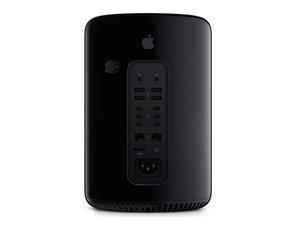I have a 2013 MacPro that had the runaway fan problem noted by others. It had been upgraded to a 12-Core 64Gb machine with a 1Tb SSD and an external Thunderbolt-connected 10Tb MaCie Big2 RAID drive, and had been running happily in that configuration for months, until the fan started running at full speed.
Typically it would run OK for anywhere from 5 to 20 minutes before the fan would flare up to impressively full speed, with the machine still stone cold, and no sign of overheating anywhere, and performance totally choked. This happened with pretty much any application running, and once with none.
I tried re-setting the SMC, VRAM and PRAM, all to no avail. I re-installed Big Sur (don’t get me started on the issues I had with that!)
A look at the Activity Monitor revealed that the culprit was somewhere within the kernel library. Processor utilisation was up over 85% and the only sign of abnormal activity was the kernel library. I re-booted in Safe Mode (restart holding down the Shift key) and used Terminal to get access to the kernel library (just type “kextstat).
The full list of kernels ran to more than 155 lines on my machine, but the Apple kernels are all named “com.apple.something,” so I started looking for rogue kernels that might trigger the problem. Some of them can just be removed, others will need the removal of the corresponding application to remove them. I didn’t lose anything that mattered, and I noticed some of those apps predated Big Sur and wondered if they were 32-bit apps causing issues.
Restart … and a few minutes later, the fan was running hard again.
Virtually the only slightly unknown application left in the application folder was a LaCie disk management application that I used to set up my Big2 drive in Raid 1. I un-installed the app, the disk works fine, and kernel activity is down to around 3%. After more than 24 hours’ continuous running, no sign of any further flares from the fan.
It’s hard to say that the LaCie app itself is the culprit, but it seems that it was interacting with something that was a problem. So far so good — I hope that helps.
Bu yanıt yardımcı oldu mu?
Oy verildi
Geri al
Puan
1
İptal
Bu yoruma uygun yeri bulmak için bu konuyu kaydırın. Ardından, taşımak için "Bu yazıya yorum ekle"ye tıklayın.

 5
5  2
2  1
1 

2 Yorum
I know you said you reset the PRAM but did you do an SMC reset already too?
Alex Robinson tarafından
Same here after CPU upgrade. Damaged GPU?
Riccardo tarafından